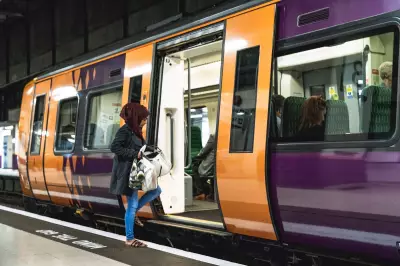
After years of complaints, a major £25 million plan to upgrade the railway stations serving Aston Villa's home ground is set to move forward, promising to revolutionise the travel experience for thousands of fans.
The £25 Million Solution
The West Midlands Combined Authority (WMCA) Board is expected to formally allocate the substantial funding for critical improvements at both Witton and Aston stations. This initiative is being fast-tracked to ensure the upgrades are completed in time for the UEFA Euro 2028 football tournament, where Villa Park will host four prestigious matches.
The funding forms part of the wider £2.4 billion Transport for City Regions (TCR) programme announced for the West Midlands in June 2025. The project will be delivered in two distinct phases to manage the scope and ensure key deadlines are met.
Phased Improvements for Fans and the Future
The first phase of work will focus on essential upgrades to be completed before Euro 2028. The primary goals are to facilitate safer queueing for large crowds, minimise disruption on event days, and deliver a significantly improved passenger experience for everyone using the stations.
A second, more aspirational phase will follow, focusing on long-term improvements that have the potential to unlock wider growth and regeneration opportunities in the area surrounding the stadium.
The report presented to the WMCA Board emphasised the urgent need for these upgrades, citing the significant disruption caused by large-scale events at Villa Park to local roads and residents. It also highlighted UEFA's ambition that 80% of all journeys to and from football matches should be made by public transport.
Broader Impact and Club Contributions
This transport investment is also crucial for Aston Villa Football Club's own ambitious plans. The confirmation of the funding gives the club certainty as it progresses with its own stadium upgrade to add 6,000 more seats and a wider regeneration programme.
In a show of commitment, Aston Villa FC will contribute approximately £2 million towards the infrastructure and public right-of-way improvements required for the station upgrades.
The project's benefits extend beyond match days. The report also connected the station improvements to broader regional aspirations, including plans to deliver 100,000 new dwellings by 2044 and the proximity of key economic zones like the Advanced Manufacturing Zone and 'The Food Hub' distribution zone.
A new Outline Business Case and updated designs for the stations are scheduled to go through the appropriate governance channels in June 2026, marking the next key milestone in this long-awaited project.





